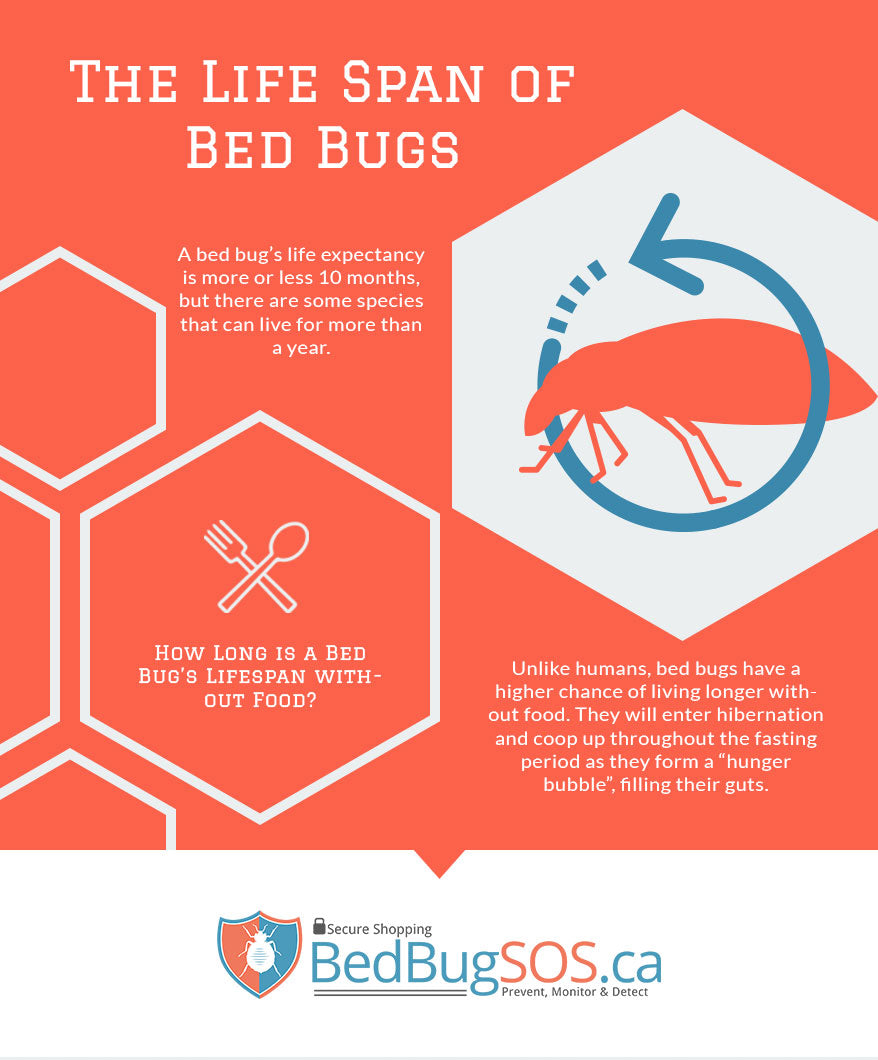Among the most common questions that people have after discovering a bed bug infestation is, “How long do bed bugs live?” Most of the time, they ask this question hoping that they can simply let the bugs starve to death to finally get rid of them.
A bed bug’s life expectancy is more or less 10 months, but there are some species that can live for more than a year. Their life cycle has multiple stages and start as the female bed bugs lay bed bug eggs of about 50. Eggs hatch within two weeks. With a stable food source, undisturbed living conditions and the right temperature, bed bugs can go from an egg to young bed bugs or also called nymphs and then turn to adult bed bugs in a month or so. Warmer temperatures help in faster reproduction and reaching maturity stage.
Despite their nymphal stages, bed bugs can feed off and bite any source of food or blood. For every stage, they need to moult, and for them to do so they need to feed. Without a food source, they can live up to a year as long as their nest is an ideal temperature.

How Long is a Bed Bug Lifespan without Food?
Though a food source is important to go through their entire bed bug life cycle, bed bugs can live without food by entering hibernation. There are several factors that must be considered including the temperature, resistance to pesticides and the condition of their hiding spot.
Since nymphs require constant feeding to moult, their lifespan will be shortened as they are deprived of food. They can survive for a few weeks without feeding. With a continuous treatment, you can completely eliminate bed bugs along with nymphs and eggs without a food source.
Unlike humans, bed bugs have a higher chance of living longer without food. They will enter hibernation and coop up throughout the fasting period as they form a “hunger bubble”, filling their guts.
Learning more about the life span of these critters will help you find out ways of controlling bed bugs in their different life stages. Aside from depriving them of a food source, using bed bug traps will help in making their lives shorter so that you can eventually kill bed bugs and eliminate them from your home.
As you exert efforts to treat bed bugs, it is necessary that you treat cracks and crevices. Use alternative source of carbon dioxide so the attention of the bugs hiding in your box spring and mattress will be lured to these traps.
